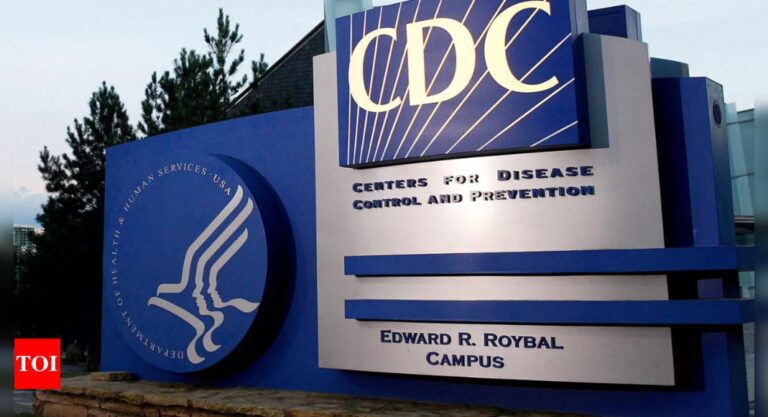
[ad_1]
The Centers for Disease Control and Prevention (CDC) has issued a warning about a surge in cases of meningococcal disease in the US, an invasive bacterial infection mainly caused by the bacteria Neisseria meningitidis. Last year, the country witnessed 422 cases, the highest annual count since 2014. As of March 25 this year, 143 cases have been reported, which is a significant increase from the same time last year.
The majority of these cases are attributed to the serogroup Y ST-1466 strain, predominantly affecting adults aged 30 to 60, and notably impacting Black or African American people and individuals with HIV.Alarmingly, this strain has demonstrated a higher fatality rate compared to those in previous years, with an 18% fatality rate among 94 patients, versus the 11% rate recorded between 2017 and 2021.
The CDC describes meningococcal disease as a severe illness that can lead to symptoms of meningitis, such as fever, stiff neck, headache, nausea, vomiting, and altered mental status. It can also trigger a bloodstream infection characterized by fever, chills, fatigue, and rapid breathing, among other symptoms. The disease spreads through close contact, such as coughing or kissing, or prolonged presence in the same room as an infected individual.
Dr Barbara Bawer, a primary care physician, emphasized the rapid progression of the disease, which can become fatal within hours without prompt antibiotic treatment. Despite treatment, the disease can still be lethal, often due to misdiagnosis.
Prevention measures include vaccination with the MenACWY and MenB vaccines, recommended for adolescents and individuals with specific risk factors or medical conditions, including HIV. To mitigate risk, the CDC and healthcare professionals advise getting vaccinated according to CDC guidelines, avoiding crowded and enclosed spaces, and seeking preventive antibiotics if exposed to someone with meningitis.
The majority of these cases are attributed to the serogroup Y ST-1466 strain, predominantly affecting adults aged 30 to 60, and notably impacting Black or African American people and individuals with HIV.Alarmingly, this strain has demonstrated a higher fatality rate compared to those in previous years, with an 18% fatality rate among 94 patients, versus the 11% rate recorded between 2017 and 2021.
The CDC describes meningococcal disease as a severe illness that can lead to symptoms of meningitis, such as fever, stiff neck, headache, nausea, vomiting, and altered mental status. It can also trigger a bloodstream infection characterized by fever, chills, fatigue, and rapid breathing, among other symptoms. The disease spreads through close contact, such as coughing or kissing, or prolonged presence in the same room as an infected individual.
Dr Barbara Bawer, a primary care physician, emphasized the rapid progression of the disease, which can become fatal within hours without prompt antibiotic treatment. Despite treatment, the disease can still be lethal, often due to misdiagnosis.
Prevention measures include vaccination with the MenACWY and MenB vaccines, recommended for adolescents and individuals with specific risk factors or medical conditions, including HIV. To mitigate risk, the CDC and healthcare professionals advise getting vaccinated according to CDC guidelines, avoiding crowded and enclosed spaces, and seeking preventive antibiotics if exposed to someone with meningitis.
[ad_2]
